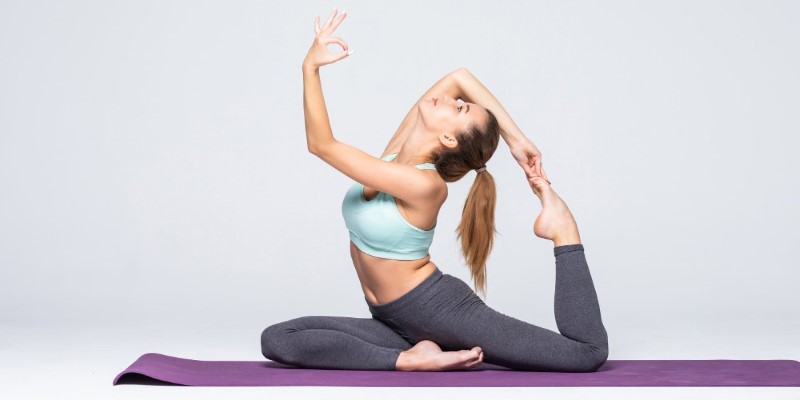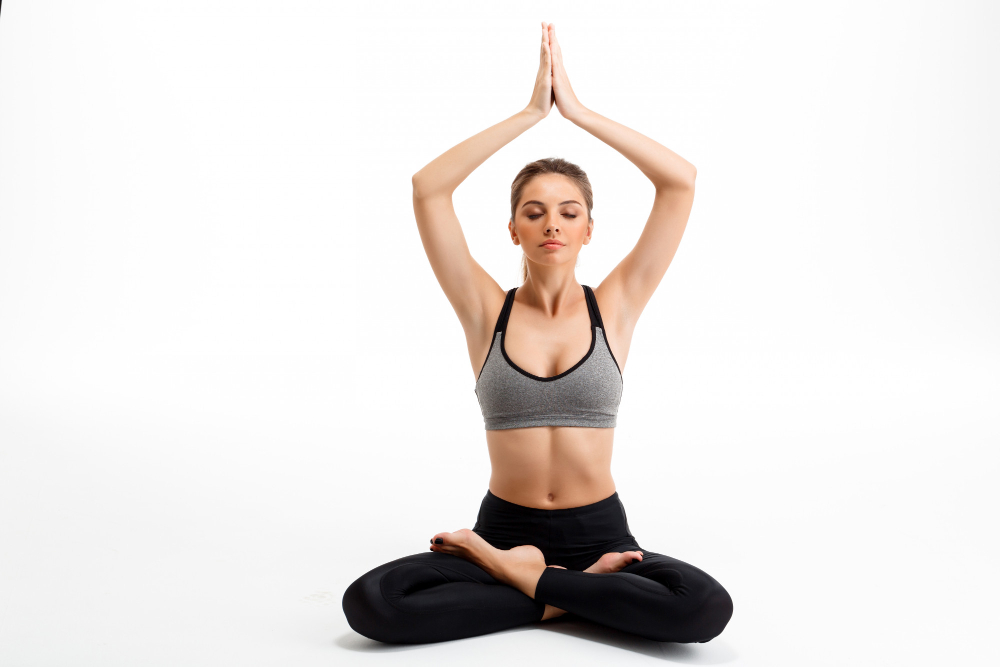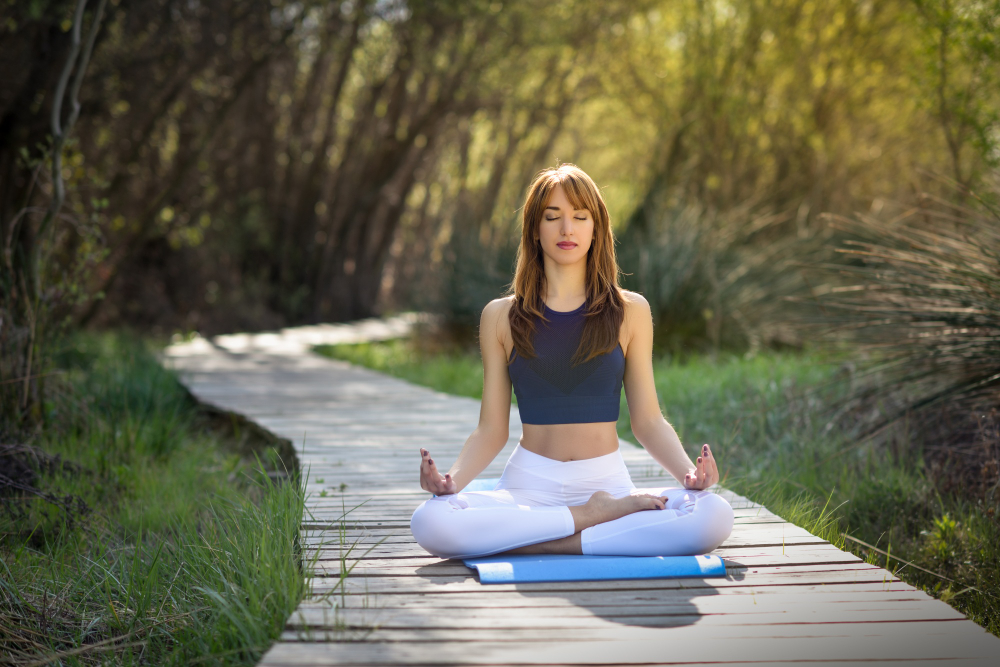
Yoga is a practice that can benefit your mind, body, and spirit. It can help you reduce stress, improve your health, and enhance your well-being. Yoga can also be fun, enjoyable, and accessible for everyone, regardless of your age, fitness level, or background. However, if you are new to yoga, you may feel overwhelmed or intimidated by the different styles, poses, and terms. You may wonder how to start, what to do, and what to expect.
Don't worry; we are here to help you. In this article, we will provide you with a beginner's guide to the basics of yoga. We will explain what yoga is, why you should do it, and how to do it. We will also give you some tips and resources to help you find the right yoga class and equipment for you. After reading this article, you will surely have a clear idea of how to start yoga and enjoy your practice. Let’s get started, shall we?
What is Yoga and Why You Should Do it?
Yoga, a practice rooted in ancient Indian wisdom, is a holistic discipline designed to unite the mind, body, and spirit. The term "yoga" originates from the Sanskrit word "yuj," meaning "to yoke" or "to bind," emphasizing the concept of connection. With a history of 5,000 years, yoga focuses on the eight limbs, each addressing different aspects of life, that can vary from ethical guidelines to meditation techniques.
The physical aspect of yoga, known as asana, involves various postures to enhance health and flexibility. However, it's essential to understand that these postures are not the end goal; they serve as a preparation for meditation, which is the ultimate aim of yoga.
Here’s why you should opt for yoga:
Mental and Physical Well-Being
Yoga offers numerous benefits for individuals of all ages and fitness levels. The physical practice can enhance flexibility, strength, balance, and posture by stretching and toning muscles and joints. Similarly, the mental and emotional benefits are stress reduction, anxiety alleviation, and even combating depression.
Enhances Your Overall Health
Engaging in yoga promotes overall well-being. It boosts immunity, aids digestion, and revs up metabolism by stimulating organs, glands, and nerves.
Lifts Your Mood
The practice also contributes to increased energy, creativity, and happiness through deep breathing, meditation, and the release of endorphins.
Yoga Practices for Beginners
Starting a yoga journey as a beginner can be a rewarding and rejuvenating experience. Yoga, a practice that unites the mind, body, and spirit, offers a range of benefits for overall well-being.
Essential Beginner Yoga Practices
Here are the essential beginner yoga practices that can help you get started with your transformative yoga journey with a smooth and powerful head start.
Hatha Yoga
Hatha yoga focuses on foundational postures and breath control. It's an excellent starting point for beginners to build strength, flexibility, and mindfulness.
Recommended Poses: Mountain Pose (Tadasana), Downward-Facing Dog (Adho Mukha Svanasana), and Child’s Pose (Balasana).

Vinyasa Yoga
Vinyasa, characterized by flowing movements synchronized with breath, builds heat in the body and enhances cardiovascular health. It's ideal for beginners who want a dynamic practice that allows you frequent movement.
Recommended Poses: Sun Salutations (Surya Namaskar), Warrior Poses (Virabhadrasana I, II), and Seated Forward Bend (Paschimottanasana).
Yin Yoga:
Yin yoga involves holding poses for an extended duration, promoting deep stretching and relaxation. It's beneficial for improving flexibility and joint health.
Recommended Poses: Butterfly Pose (Baddha Konasana), Sphinx Pose, and Child’s Pose with extended arms.
Restorative Yoga
This type of yoga focuses on relaxation and rejuvenation, making it perfect for beginners looking to relieve stress and tension.
Recommended Poses: Legs Up the Wall Pose (Viparita Karani), Supported Child’s Pose, and Corpse Pose (Savasana).
Beginner-Friendly Yoga Poses:
Now that you’ve acquired the basic yoga practices let's also take a look at the beginner-friendly yoga poses
Mountain Pose
Tadasana, or Mountain Pose, is foundational for yoga practice. It enhances posture, aligns the spine, and works on strengthening both legs and core muscles. To achieve this pose, stand tall with your feet together and arms by your sides. Engage your thighs, lift your chest, and extend your arms overhead, palms facing each other.
Downward-Facing Dog
This pose offers a full-body stretch, mainly targeting the arms and legs. Downward-Facing Dog is excellent for relieving tension in the spine. Begin on your hands and knees, tuck your toes, lift your hips toward the ceiling, and straighten your legs, forming an inverted V.
Child’s Pose
Balasana, or Child's Pose, is a restful posture that relaxes your spine and stretches the hips, thighs, and ankles. Kneel on the mat, sit back on your heels, and extend your arms forward, allowing your forehead to rest on the ground.
Warrior I
Warrior I strengthens the legs, opens the hips, and cultivates focus and stamina. From a standing position, step one foot back, bend your front-knee, and extend your arms overhead, palms facing each other.
Tips for Yoga Beginners
Are you overwhelmed because of your yoga journey? Here are some tips for yoga beginners:

Listen to Your Body: Pay attention to how your body feels during practice. Modify poses if needed, and avoid pushing yourself too hard.
Consistent Breath: Focus on steady, deep breathing. Coordinating breath with movement enhances mindfulness and relaxation.
Use Props: Props like blocks, straps, and blankets can assist in maintaining highly proper alignment and ease into poses comfortably.
Be Patient: Progress in yoga takes time. Celebrate small victories, and don't be discouraged by initial challenges.
Explore Different Styles: Try various styles to find what resonates with you. Yoga is diverse, offering something for everyone.
The Recap!
You’ve reached the end of the beginner yoga guide. We made sure to include every essential point for a yoga beginner. Be sure to follow it and create a steady roadmap for your transformative journey. Also, use these tips to have a safe yoga experience to enjoy it to the fullest.



